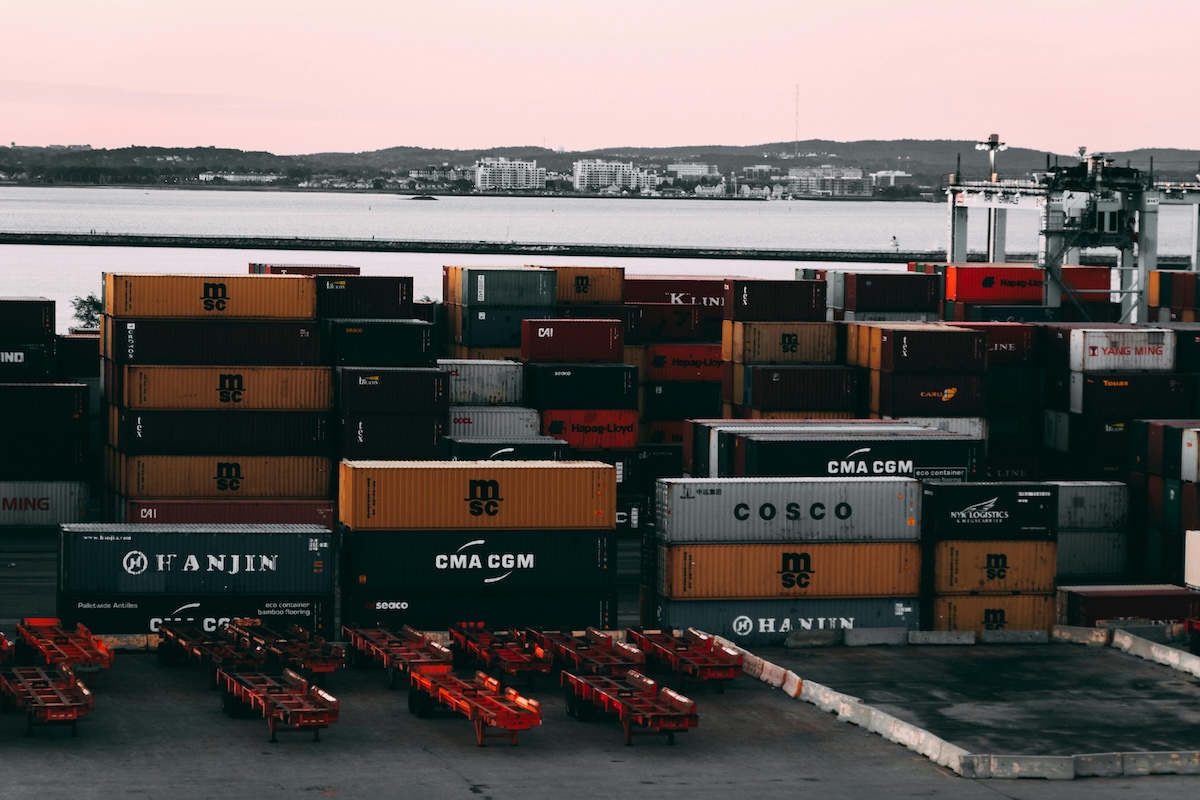Obama Administration Moves Full Steam Ahead on Cuban Policies

Article Summary
The Obama administration aimed to normalize relations with Cuba by easing trade, travel, and communication restrictions.
OFAC added an exception allowing foreign vessels to enter U.S. ports within 180 days of trading with Cuba.
The administration allowed more U.S. businesses to engage in trade with Cuba and improved communication channels.
The changes marked a shift toward normalization, fostering economic and diplomatic ties between the U.S. and Cuba.
Challenges included opposition from Congress, regulatory complexities, and resistance from groups favoring stricter embargo policies.
President Obama and the administration are moving full steam ahead to normalize bilateral relations with Cuba. On October 17, 2016, the Department of the Treasury’s Office of Foreign Assets Control (OFAC) and the Department of Commerce’s Bureau of Industry and Security (BIS) amended the Cuban Assets Control Regulations (CACR) and the Export Administration Regulations (EAR), respectively, to ease sanctions related to scientific collaboration, humanitarian activities, trade and commerce, and travel. Consistent with President Obama’s policy directive in December 2014 to chart a new course with respect to U.S.-Cuba relations, these amendments are aimed to create new opportunities for collaboration and commercial opportunities for Cubans and Americans. Specifically, new general licenses and authorizations were added to the regulations to allow for such transactions. Significant highlights are noted below.
Import Related Transactions
Items that were previously exported or reexported to Cuba pursuant to a BIS or OFAC authorization may now be imported into the US or a third country pursuant to OFAC’s new general license. This means that recipients in Cuba of the items can now return the items to the US or a third country. It will also permit persons subject to US jurisdiction to service and repair such items. However, exporting or reexporting replacement items or items that have been repaired or serviced must be separately authorized as required by OFAC and/or BIS.
Cargo & Vessel Transactions
OFAC has amended the CACR to add an additional exception to the prohibition against foreign vessels entering a U.S. port for 180 days after it had called on a Cuban port for trade purposes. The amendment will allow foreign vessels to enter US ports for purposes of loading or unloading freight for trade purposes after they depart from Cuba as long as the items carried on the vessel to Cuba are designated as EAR99 or are controlled on the Commerce Control List for anti-terrorism reasons only. This means that foreign ships could stop at multiple ports in the Caribbean unloading cargo, including Cuba, and continue on to the U.S. without waiting the 180 day period. Keep in mind that transshipment rules will still apply, meaning that items offloaded in Cuba may not enter the U.S.
BIS has revised License Exception AVS (Aircraft, Vessels, and Spacecraft) to allow cargo aboard aircraft to transit Cuba when the cargo is bound for destinations other than Cuba. This is an extension of License Exception AVS, which had already applied to cargo transiting Cuba by vessel. It’s key that the cargo is actually in transit, as cargo cannot be removed from the aircraft or vessel for use in Cuba to be eligible for AVS.
Civil Aviation
With safety issues in mind, OFAC has added a new general license authorizing persons subject to US jurisdiction to provide civil aviation safety-related services to Cuba and Cuban nationals. Licenses for items to ensure the safety of civil aviation and the safe operation of commercial aircraft engaged in international air transport will generally be approved by BIS.
Services Related to Cuban Infrastructure
Persons subject to U.S. jurisdiction are authorized to provide services to develop, repair, maintain, and enhance infrastructure in the U.S. The CACR defines broadly defines “infrastructure” to include systems and assets used to provide the Cuban people with goods or services produced sectors such as public transportation, water and waste management, non-nuclear electricity generation, electricity distribution, hospitals, public housing, and primary and secondary schools.
Health & Pharmaceuticals
OFAC has authorized persons subject to U.S. jurisdiction to engage in both commercial and non-commercial medical research with Cuban nationals. In partaking in these health-related activities, authorized medical researchers would be able to open and maintain bank accounts in Cuba to conduct approved business. A new OFAC authorization will allow Cuban-origin pharmaceuticals to be imported, marketed, sold, and distributed within the U.S. In order to do so, all Cuban-origin pharmaceuticals must be approved by the U.S. Food and Drug Administration. Transactions incident to obtaining the FDA approval would also be valid. Licenses for medicines and medical devices, whether sold or donated, are generally approved by BIS.
Agriculture
In terms of payment restrictions, OFAC has made a technical clarification between “agricultural commodities” and “agricultural items” by removing references to “agricultural items” from section 515.533(a) of the CACR,. Specifically, agricultural items authorized by BIS for export or reexport to Cuba, like tractors and pesticides, would not be subject to restrictions on payment terms. In contrast, agricultural commodities, like corn and poultry, authorized for export and reexports to Cuba are subject to the limitations on payment and financing terms of cash in advance or third-country financing as required under the Trade Sanctions Reform and Export Enhancement Act.
Contingent Contracts
Under OFAC’s new expanded general license, persons subject to U.S. jurisdiction can enter into contingent contracts for transactions that are currently prohibited by the embargo as long as the contract includes express provisions that make contract performance contingent on prior authorization by OFAC and any other federal agency or on authorization no longer being required. Transactions ordinarily incident to such contracts will also be authorized.
Personal Use
With the intent to spur the sale of consumer products directly to individuals in Cuba, BIS will generally authorize exports and reexports of consumer goods sold online or through other direct means to eligible individuals in Cuba. The sale must be for their personal use or their family’s personal use. To be eligible, items must be classified as EAR99 or controlled on the Commerce Control List only for anti-terrorism reasons. For e-commerce companies in the U.S., this presents an opportunity to expand their market so long as their items are eligible.
Lastly, the $400 monetary value limits of Cuban-origin merchandise on what authorized travelers can import as accompanied baggage for personal use has been lifted, including limits on alcohol and tobacco. The normal limits on duty and tax exemptions will apply. This means that the prior $400 limit ($100 for imports of Cuban alcohol and tobacco) is no more, and the normal limits of duty and tax exemptions of $800 will apply.
As with all sanctions-related actions, a close reading of each authorization, license, and use of license exception is necessary to confirm that all applicable terms and conditions are met. As the 2016 election cycle nears the end, have a toast of Cuban rum or celebratory Cuban cigar!
Key Points
What were the Obama administration’s goals for U.S.-Cuba relations?
The Obama administration sought to normalize relations with Cuba by:
- Easing Trade Restrictions: Allowing more U.S. businesses to engage in trade with Cuba.
- Improving Communication: Facilitating better communication between the U.S. and Cuba.
- Encouraging Diplomacy: Promoting bilateral relations to foster economic and cultural exchanges.
What changes did OFAC make to the Cuban Assets Control Regulations (CACR)?
The Office of Foreign Assets Control (OFAC) amended the CACR to:
- Add Exceptions for Foreign Vessels: Allow foreign vessels to enter U.S. ports within 180 days of trading with Cuba.
- Facilitate Trade: Reduce restrictions on certain transactions involving Cuba.
How did the Obama administration impact trade and travel with Cuba?
The administration implemented several key changes:
- Eased Travel Restrictions: Allowed more Americans to visit Cuba under specific categories.
- Expanded Trade Opportunities: Enabled U.S. businesses to engage in limited trade with Cuban entities.
- Improved Communication: Supported initiatives to enhance communication infrastructure between the two countries.
What was the significance of these policy changes?
The Obama administration’s policies represented a major shift in U.S.-Cuba relations:
- Normalization of Relations: Marked the first significant steps toward ending decades of hostility.
- Economic Opportunities: Opened new avenues for trade and investment.
- Diplomatic Progress: Fostered dialogue and cooperation between the two nations.
What challenges did the Obama administration face in implementing these policies?
Despite progress, the administration encountered several obstacles:
- Congressional Opposition: Resistance from lawmakers who favored maintaining the embargo.
- Regulatory Complexities: Navigating the legal and bureaucratic hurdles of easing restrictions.
- Public and Political Resistance: Pushback from groups advocating for stricter policies toward Cuba.
How did these policies set the stage for future U.S.-Cuba relations?
The Obama administration’s efforts laid the groundwork for:
- Future Policy Adjustments: Subsequent administrations could build on or reverse these changes.
- Economic Integration: Opened the door for increased trade and investment opportunities.
- Diplomatic Engagement: Established a framework for continued dialogue and cooperation.










